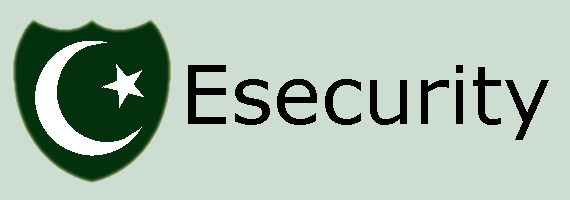 |
 |
 |
|
| Home | Talks | Training | Register | Contests | Venue | Sponsors | Team | Archives | Press | Contact Us | |
English | اردو
|
||
 |
 |
||
|
Call for Papers |
Friday-Tuesday, November 06-10, 2009, Lahore. Training Track-4: Packet Sniffing - Network traffic processing and analysis Training: Packet Sniffing - Network traffic processing and analysis Trainer: Muhammad Farooq-i-Azam Duration: Two Days - Monday and Tuesday November 09 - 10, 2009. Cost: See below. Discount applicable if you register early.
Please download and fill Training Registration Form and post along with payment to the address given in the form. After you have posted the registration form, please send an electronic copy to the email address given below: register AT chase DOT org DOT pk A confirmation email will be sent once the post has been received. After the payment has been successfully transferred, a receipt will also be posted to your address as well which you should produce at the time of the event. Training Overview All communication over the Internet and all computer networks for that matter is carried out by sending or receiving information over tiny bundles of electronic signals called packets. Packets are all that are generated when we follow a hyperlink, send an e-mail, chat online, upload a file and packets are all that we get when we receive information over the Internet. In essence, in addition to other network hardware that we usually talk about, e.g. routers, switches, gateways, hosts, etc. is is the packets that the network is made up of. An end user remains oblivious of most of the packets arriving on the interface of its machine. It gets to see only data part of those packets that carry user payload. It does not know anything about headers of these packets and nothing at all about the contents of control packets. A packet sniffer is a program that gets a complete copy with all headers and data of every packet received by the operating system. Combined with other techniques, it can get a copy of other hosts on the network as well. It is a fundamental tool which forms the basis of many other applications and finds numerous uses for network administrators, academics, researchers, hackers, intruders, security experts alike. Some of the applications of packet sniffers include intrusion detection, network mapping and bandwidth calculation, building and debugging of new protocols, spying i.e. watching what other people are doing, session hijacking and replay and to learn how networks and protocols work. This hands-on training is meant for computer science and engineering students, professionals and researchers. A little knowledge of network protocols and programming is desired. The training will include practical demonstration with hands-on sessions with many well-known and less-known programs used for the job. This also includes programs developed by the trainer himself. Training Content This lists main modules of the training.
Mr. Muhammad Farooq-i-Azam has a degree in electrical engineering from the
University of Engineering and Technology Lahore [He studied
at the constituent college at Taxila which is now
University of Engineering And Technology Taxila] and
then a M.Sc. in Computer Science
from the Punjab University College of Information Technology,
University of the Punjab, Lahore. He has served in
Pakistan Atomic Energy Commission for some years where he was
in-charge of the Computer Center at the head office and had a chance to work with some of the most state of the
art computers and machines. Apart from this he was also associated with a classified ;-) project to
get the nuclear touch.
Mr. Muhammad Farooq-i-Azam has been working with computers since they appeared in Pakistan. He has extensive work experience with computer networks and Unix based systems, Solaris, VAX/VMS machines and various distributions of Linux. He also designed and developed his own Intel 8086/8088 based Single Board Computer while at Pakistan Atomic Energy Commission for which he wrote its own operating system entirely in assembly language. Lately he has been working on the development of packet sniffers, which are low level tools, used to capture and dissect packets off the wire. He is also a member and project admin of the IPGRAB project, which is a respected packet sniffer, distributed with Debian Linux originally authored by Mike Borella. IPGRAB can decode a large number of protocols and can sniff packets in promiscuous mode. It is one of quite few projects distributed with a Linux distribution for which source code contribution is made by Pakistan as well. http://sourceforge.net/projects/ipgrab/ He is also an active supporter of Free and Open Source Software and believes in FOSS philosophy for Pakistan. He has conducted numerous trainings on computer and Internet security. 




|
|||||||||
| © CHASE 2006-2009, | ||||||||||